Unraveling Space Weather: How Solar Activity Shapes India and Beyond. Explore vital insights into its impacts and implications
The sun, our nearest star, does more than just give us light and warmth. It
also emits a constant stream of charged particles and energy, a phenomenon we call "space weather.
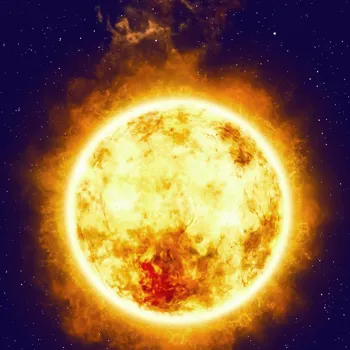
" While beautiful auroras are one visible effect, space weather can also have significant impacts on our technology, communications, and even our power grids right here in India.
Understanding these effects is becoming increasingly important as our society becomes more reliant on technology susceptible to solar storms. Let's explore six key insights into how space weather affects our planet.
India's space program faces risks from space weather; investments in monitoring are vital
India, with its burgeoning space program and expanding technological infrastructure, is increasingly vulnerable to the effects of space weather. The disruption of satellite communications can impact everything from television broadcasts to critical navigation systems used in aviation and shipping.
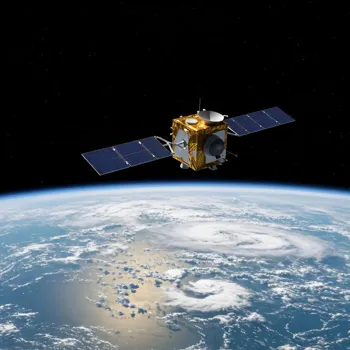
Power grid fluctuations due to geomagnetic disturbances can lead to widespread outages, affecting homes, businesses, and essential services. Understanding space weather is not merely an academic exercise; it's a matter of national security and economic stability for India.
Investing in space weather monitoring and forecasting capabilities is crucial to mitigate potential risks and protect our country's infrastructure.
Solar storms impact satellite operations, affecting vital services in India
One key impact is on satellite operations. Satellites orbiting Earth are bombarded by charged particles during solar storms. These particles can damage sensitive electronic components, leading to malfunctions or even complete failure of the satellite.
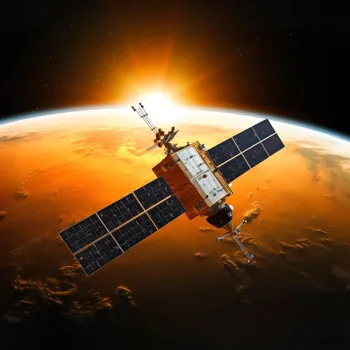
This can affect vital services like communication, weather forecasting, and GPS navigation, which are crucial for various sectors in India, including agriculture, disaster management, and transportation.
Regular monitoring and proactive measures are therefore important to minimize downtime and protect these important assets that our country depends upon greatly.
Solar disturbances impact power grids, require mitigation for stability
Geomagnetic disturbances, caused by solar flares and coronal mass ejections (CMEs), can induce currents in long conductors like power transmission lines. These induced currents can overload transformers and other electrical equipment, leading to power outages.
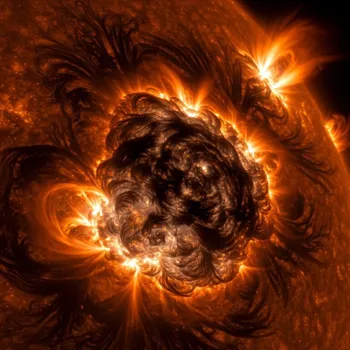
In India, where power infrastructure is often stretched, such outages can have serious consequences, impacting industries, hospitals, and households.
Strengthening power grids and implementing mitigation techniques such as grounding and shielding can help to reduce the severity of these disruptions and increase energy stability for all.
HF radio communications disrupted by space weather, crucial for safety in India
High-frequency (HF) radio communications, often used in aviation, maritime, and military operations, can be severely disrupted during space weather events. Solar flares emit X-rays and ultraviolet radiation that can ionize the Earth's atmosphere, affecting the propagation of radio waves.
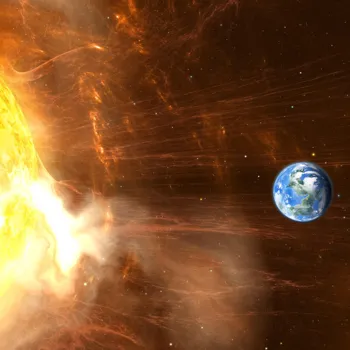
This can lead to signal fading, reduced range, and even complete blackout of HF communications.
In India, where HF radio is still used in remote areas and for emergency communications, ensuring reliable operation during space weather events is essential for maintaining connectivity and ensuring public safety and security across the country.
Radiation exposure risk for astronauts and airline passengers
Radiation exposure is another concern, particularly for astronauts and airline passengers flying on polar routes. During solar storms, the flux of high-energy particles increases significantly, raising radiation levels in the upper atmosphere.
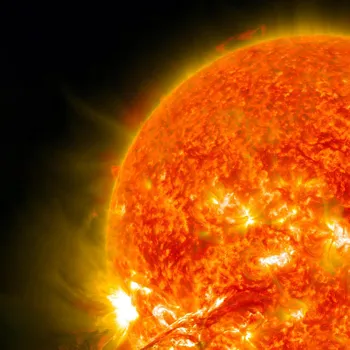
This can increase the risk of radiation exposure for astronauts in space and for passengers and crew on flights that traverse polar regions.
Monitoring radiation levels and adjusting flight paths when necessary can help to minimize this risk, protecting the health of those traveling through the air and beyond.
Space weather impacts pipeline operations, causing corrosion and leaks
Space weather can also affect pipeline operations. Geomagnetically induced currents (GICs) can cause corrosion in pipelines, reducing their lifespan and increasing the risk of leaks. This is particularly relevant for long pipelines that traverse regions with high geomagnetic activity.
Monitoring GICs and implementing corrosion control measures can help to mitigate these effects and ensure the safe and reliable operation of pipeline infrastructure in India, helping to transport important resources to the many communities.
Space weather impacts GPS accuracy, requiring improved models for reliability
Finally, space weather events can also impact the accuracy of GPS navigation systems. The ionosphere, a layer of the Earth's atmosphere, is affected by solar activity, which can introduce errors in GPS signals.
This can affect various applications that rely on precise positioning, such as surveying, construction, and autonomous vehicles.
Improving ionospheric models and developing mitigation techniques can help to enhance the accuracy and reliability of GPS navigation, even during space weather events, and improve safety and efficacy when using GPS related technologies.
AI Generated Content. Glance/InMobi shall have no liability for the content














